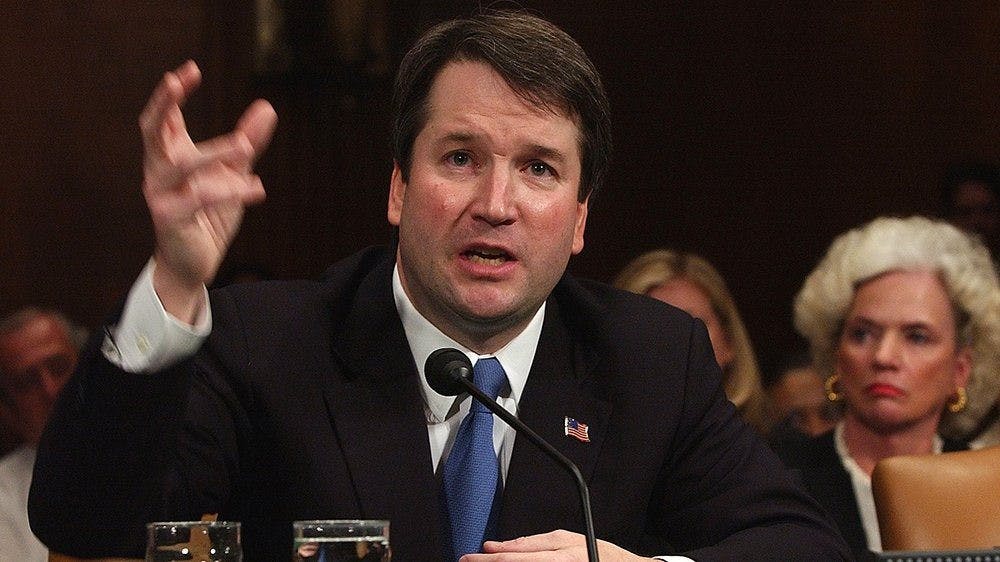The buzzwords “Brett Kavanaugh” have been ubiquitous as everyone outspokenly offers their own opinions and insights on what is happening and what will happen and what should happen. We talk about the hearings not like an issue of partisan politics but instead as an issue that is intensely personal. Of course, the hearings are part of a monumental, impactful, and semi-permanent decision regarding one of our nation’s highest positions. But why are we, Princeton students, really watching?
You could point to the fact that this trial could indicate the direction of the U.S. Supreme Court for decades to come. You could suggest that polarized partisan politics are driving an addiction to the debate. You may think that the drama and the accessibility of the issue are fueling the nation’s obsession. But to me, we are glued to the screen to see how this issue that has defined the last year will play out on a stage widely understood to be the pinnacle of justice and fairness.
Amidst the #MeToo movement and the clear parallels to Anita Hill’s testimony in 1991, the hearings bring up questions of where our government stands on the issue of sexual harassment. Will the senators listen to Christine Blasey Ford? Will they take her seriously? Will the public and the media and our president?
A friend’s mom was visiting campus and remembered her own experience watching — with similar intensity to today — Anita Hill’s testimony while she was with the women she was closest to just out of college. During Justice Clarence Thomas’s hearing, she watched on the screen as the all-male panel of senators interrogated Hill about every detail of her allegations and attacked her credibility. My friend’s mom recounted how the outcome and the trial itself sent them a clear signal: It’s on us to protect ourselves from harassment, not the government or the legal system or society at large. Watching in 2018 we wonder: Will they treat Ford like Hill? Have we not come as far as we may have hoped since 1991?
As we wonder if the U.S. Senate will take Ford seriously enough, we also watch to see if they handle the issue in a way that is fair to the accused in a moment when the accepted burden of proof is changing from the traditional. Will they honor due process for Kavanaugh? Will they understand him as innocent until proven guilty? Will the accusation itself condemn him — a worry we’ve seen in many accusations and a concern for students our age on college campuses?
As we watch the marathon Senate confirmation hearings, we judge Kavanaugh’s character, the quality of his responses, and the quality of his legal work to date. But at the same time we judge how our elected officials and our highest court system handle the pervasive issue of sexual assault. Quinta Jurecic in The Atlantic explains, “The story of Ford’s trauma is intensely familiar. Assaults like the one she described, and the fear of such assaults, are woven into the everyday texture of women’s worlds. What Kavanaugh is saying in response, and what the Senate does next, speaks not only to Ford’s personal experience but to the experiences of far too many women.”
In this way, our fascination isn’t really about Kavanaugh. It’s about the legacy and the precedent of the hearings. It’s about the feeling of finality in how the allegations are handled. It’s about the way everyone watching — men, women, those who remember Hill, those who don’t — will remember the proceedings and how it will color how we all think about sexual harassment for years to come.
Jessica Nyquist is a senior concentrator in computer science from Houston, Texas. She can be reached at jnyquist@princeton.edu.








